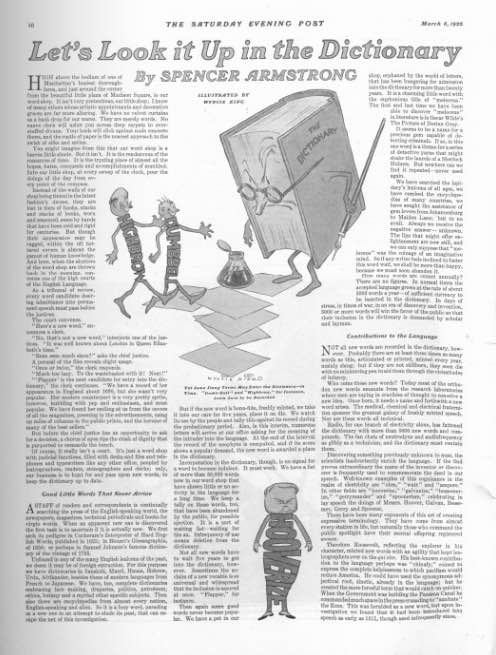Old Words and New Terms: Dictionary Development
Though they may conjure images of dusty antiquity, dictionaries are more akin to lively snakes, regularly shedding their skins of dilapidated words and devouring fresh new ones. Some of the recent verbal dreck include the outdated words brabble, cramoisie, growlery, and Ostmark. If you can’t use any of those vocables in a sentence, don’t worry — you’ll never need to. They’ve been eliminated from the reference work.
A growlery is basically a man cave, the latter a phrase Merriam-Webster’s lexicographers added in 2012 suggesting a room filled with football pennants, motorcycles, and beer paraphernalia. In September of this year, the dictionary behemoth announced that new additions to the lexicon included dog whistle and hive mind. The lexical hive mind drives the transformation of our dictionaries after all.
That isn’t to say there aren’t standards for new entries. Fresh vocabulary surfaces in various fashions — technology, politics, culture — but new words have to show robustness and staying power to warrant inclusion in dictionaries. In 1926, the Post’s article “Let’s Look It Up in the Dictionary” observed the process of inducting new words at a Manhattan editing house. Flapper, highbrow, and dumbbell were the new dictionary fare at the time, and meloceus was on the chopping block. “To gain a place in the dictionary, a word must express a thought, or new variance of a thought, that is not in the compendium already,” the author alleges. Furthermore, new language must pass a sort of popularity test, since “infrequency of use means deletion from the dictionary.”
If dictionaries were invented to enlighten the public as well as reflect its language, perhaps they’ve been working. Experts in 1926 estimated that “a college graduate has a command of upward of 20,000 words,” while the average person knew around 10,000. In 2013, data from The Economist revealed that most native English-speaking adults had a vocabulary of 20,000–35,000 words. While the credit for this lexical progress could be due to any number of factors, dictionaries deserve some recognition for our greater literacy.
Comprehension of language and objective meaning comes before all other communication. Dictionaries bridge gaps between social divisions and geographies, rendering the editors at Merriam-Webster and Oxford University Press quite influential after all. “But the lexicographer doesn’t make the language in any sense,” as the Post clarified in 1926; “he merely records the best of it, that which is used or usable. Neither can speakers or authors force new vehicles of speech into the language; not even the President.”
